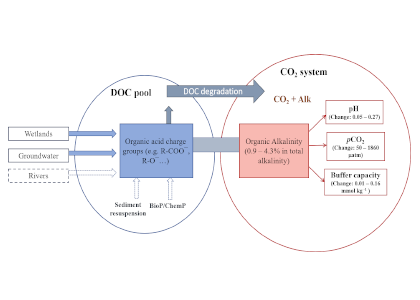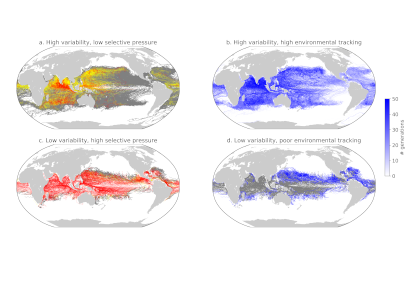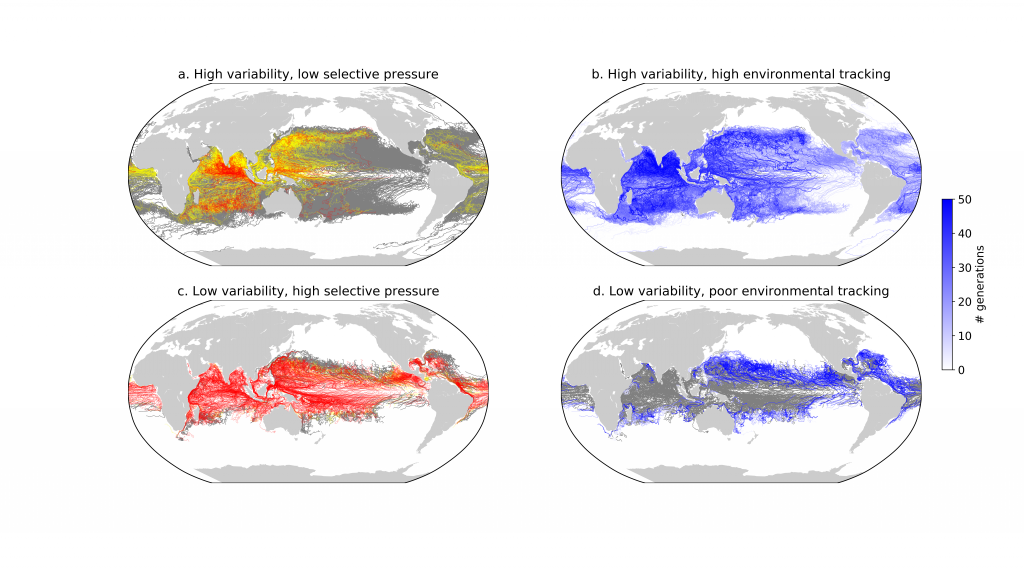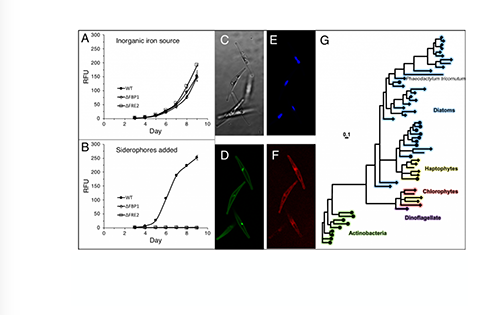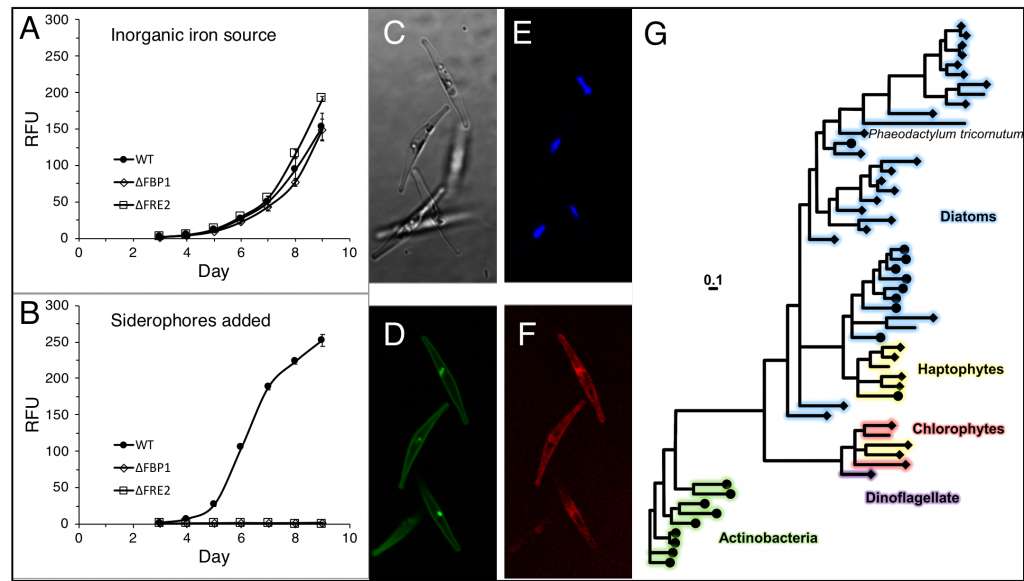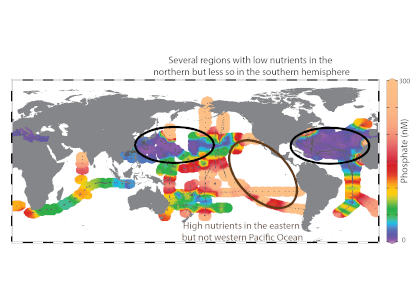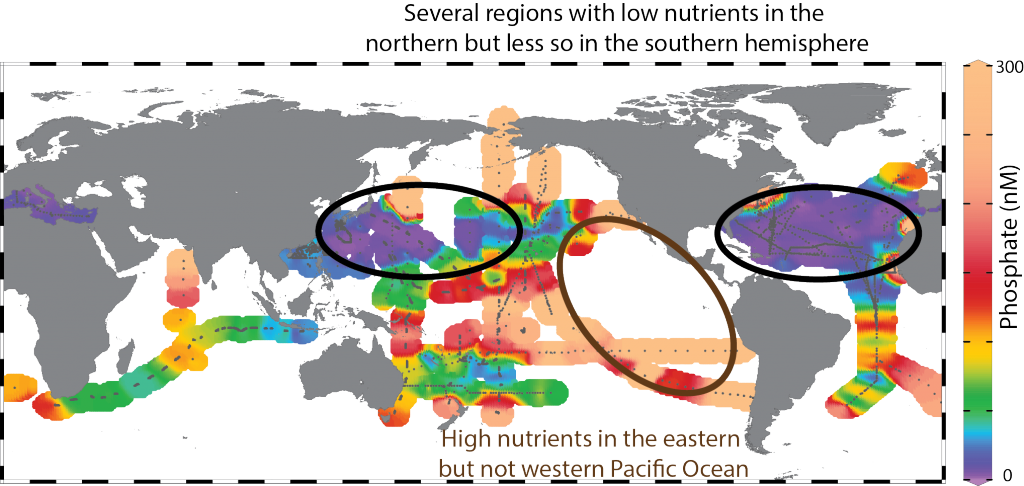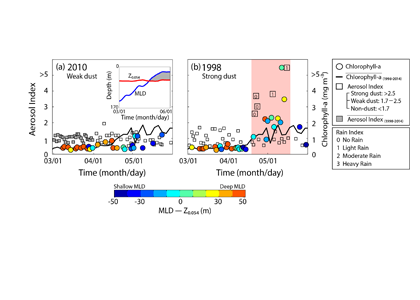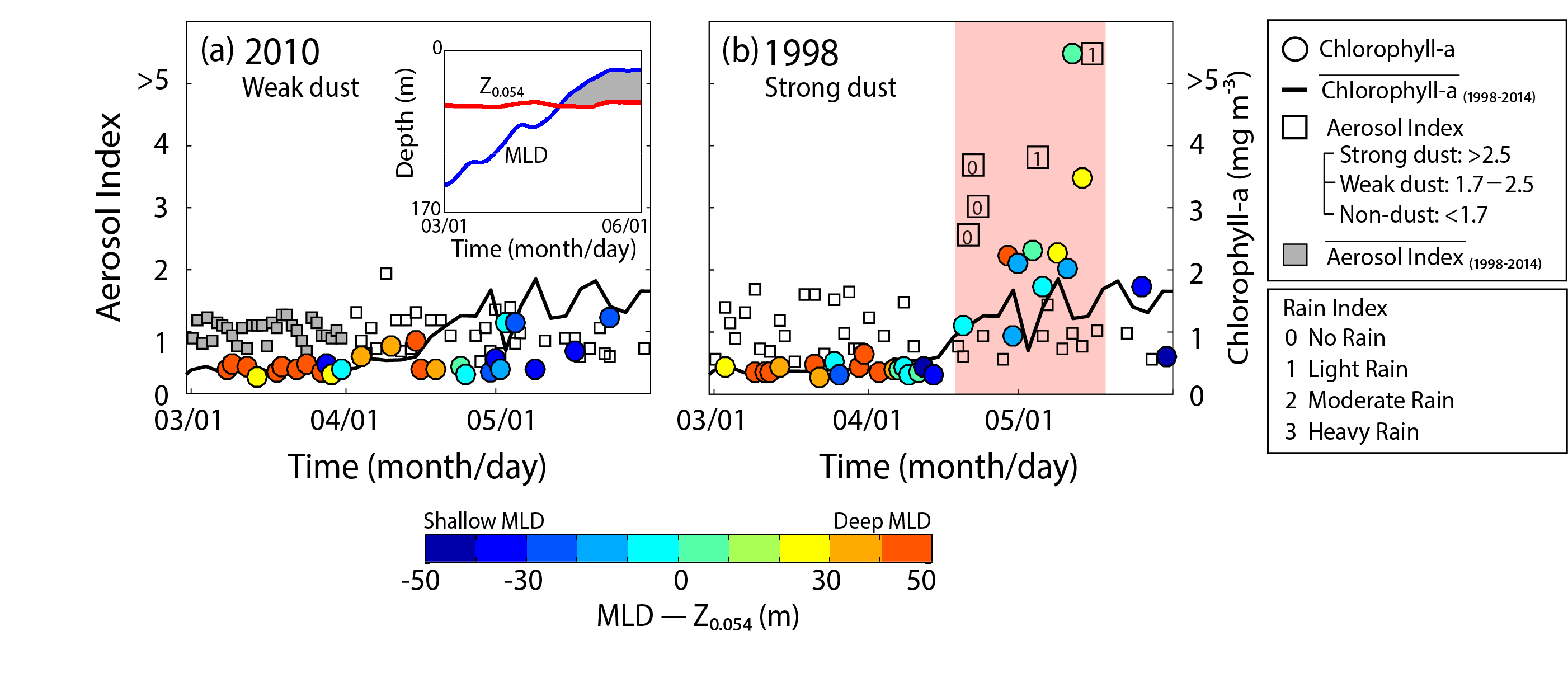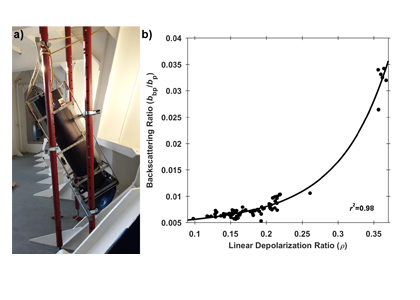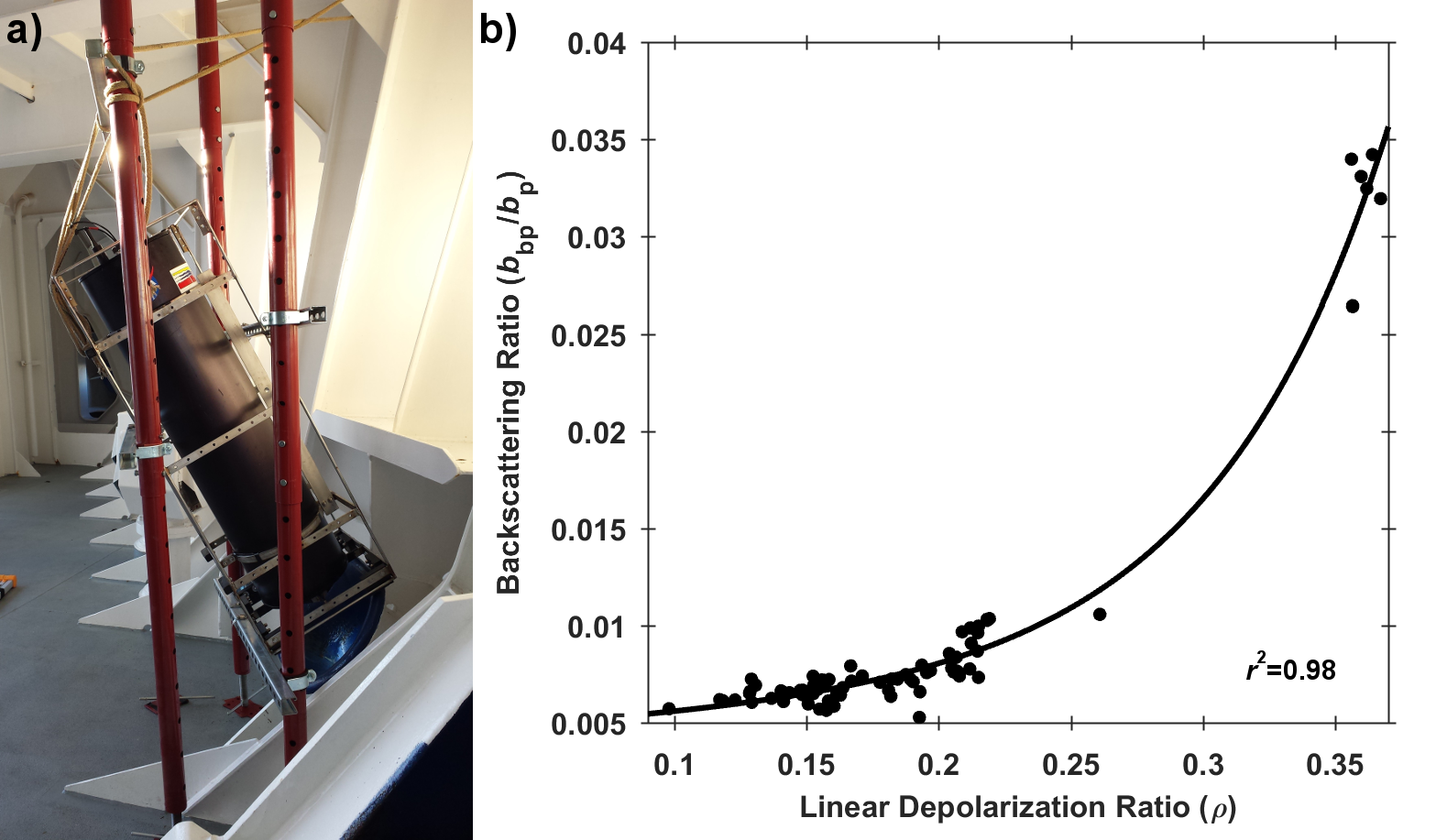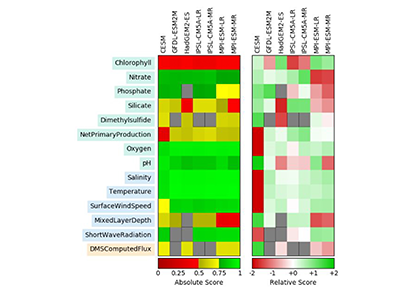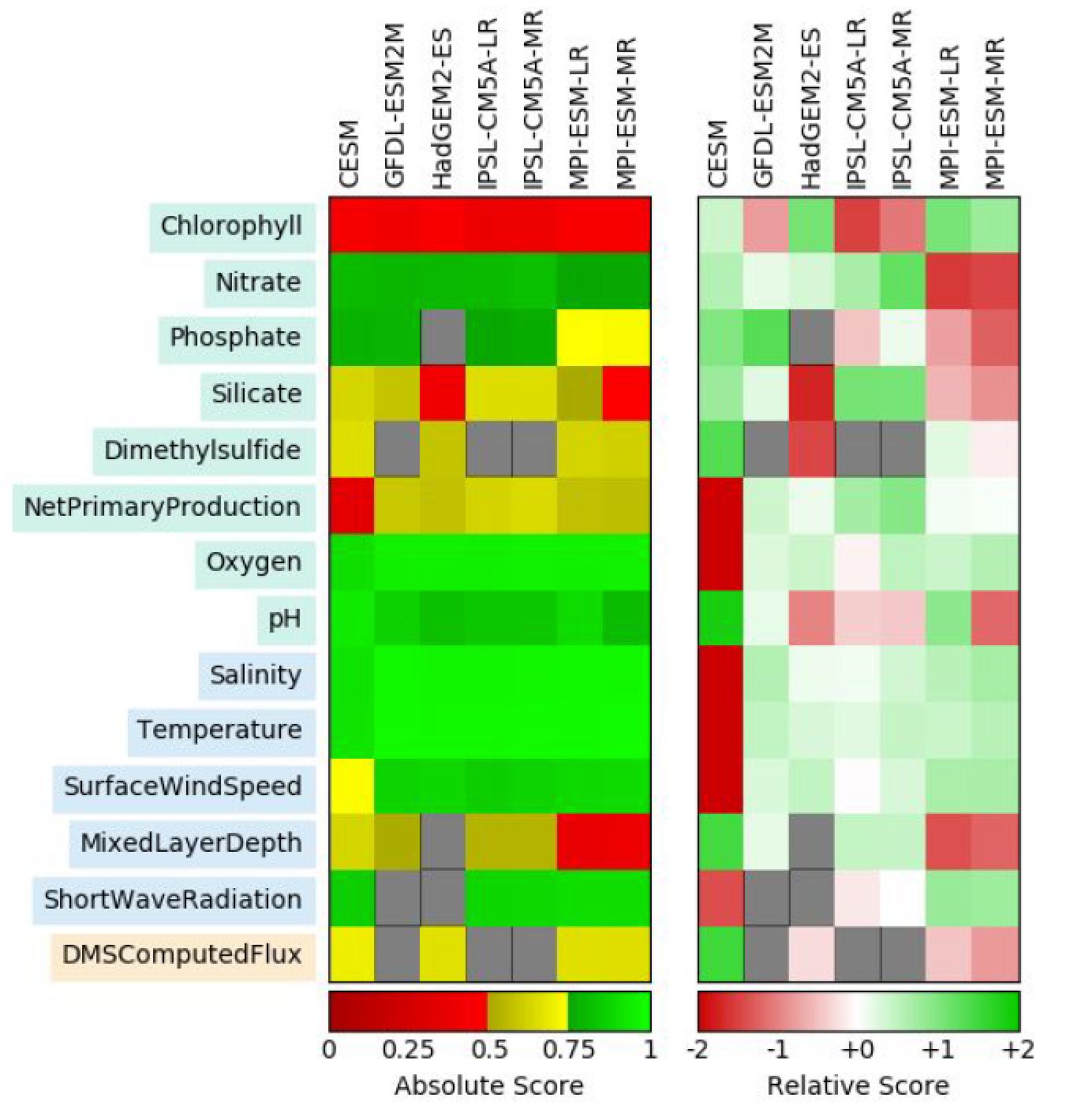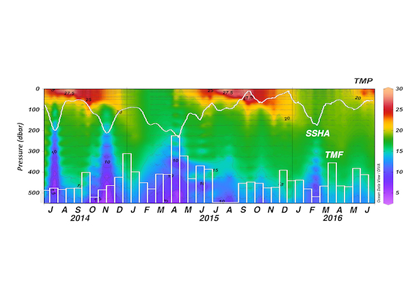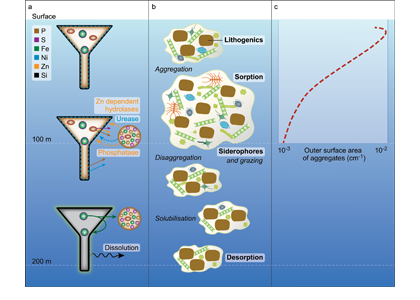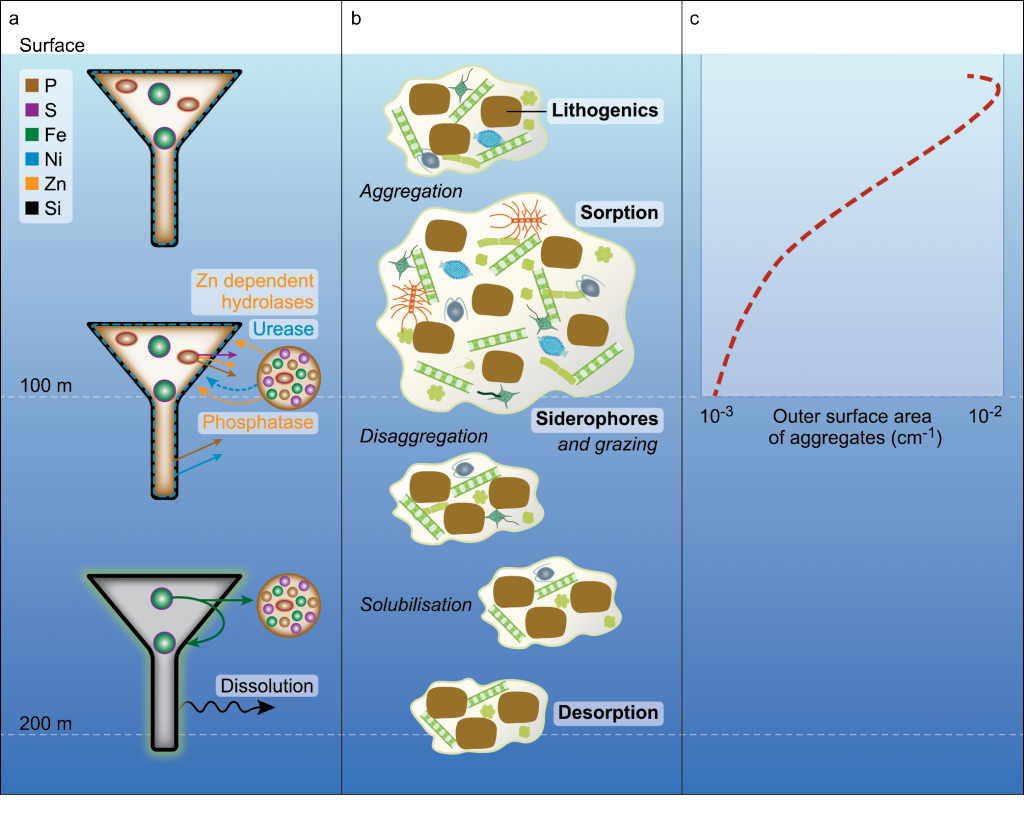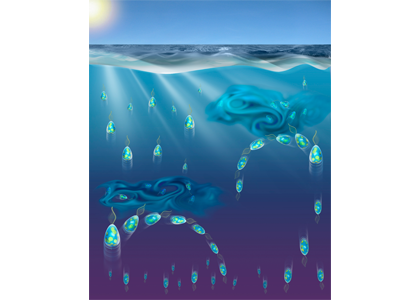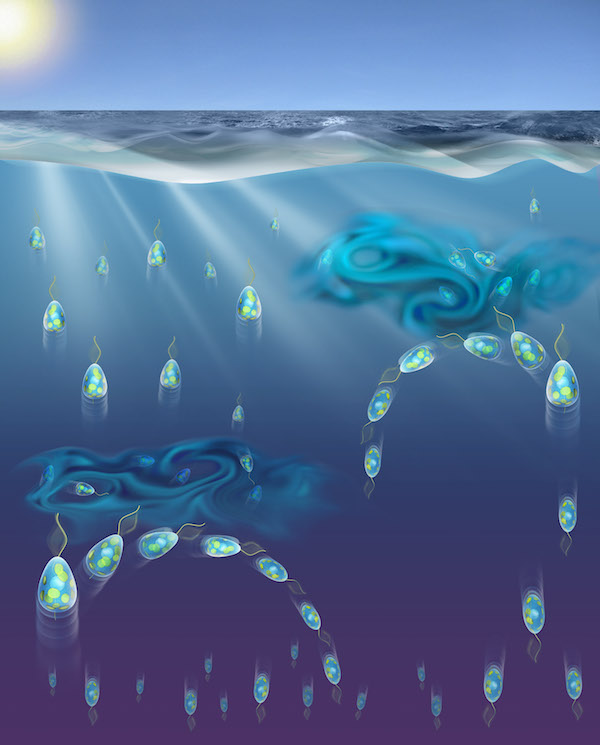As a part of dissolved organic carbon (DOC), organic acid charge groups can contribute significantly to total alkalinity (TA) in natural waters. Such a contribution is termed as organic alkalinity (OrgAlk). Beyond being part of TA, OrgAlk represents an important biogeochemical linkage between organic and inorganic carbon cycling. In other words, the biogeochemical cycling of organic acid charge groups – i.e. their sources, sinks, and biogeochemical behaviors – directly impacts pH and carbonate speciation, which may ultimately influence air-water CO2 exchange and inorganic carbon fluxes. However, the effects of OrgAlk is often ignored or treated as a calculation uncertainty in many aquatic CO2 studies. How we treat and study OrgAlk may need a new paradigm under biogeochemical cycles.
Based on direct titration data of OrgAlk, the authors of a recent study conducted a comprehensive assessment of OrgAlk variability, sources, and characteristics in a sub-estuary of Waquoit Bay (Massachusetts). The sub-estuary is influenced by a salt marsh, groundwater input, and offshore water. Both the salt marsh and groundwater OrgAlk contributed up to 4.3% of the TA across all sampled seasons. Estuarine OrgAlk:DOC ratios varied across space and time, which suggests that their abundances are controlled by different biogeochemical processes. In addition, the study demonstrates the insufficiency of using a fixed proportion of DOC to account for OrgAlk, as well as the challenge of using measured pH, TA, and dissolved inorganic carbon (DIC) to estimate OrgAlk. The effects of OrgAlk in these waters are equivalent to a pH change of ~ 0.03 – 0.26, or a pCO2 change of ~30–1600 matm. If extrapolating OrgAlk results to other coastal systems ranging from estuaries to continental shelves, OrgAlk would exert a strong control on both carbonate speciation and, ultimately, air-sea CO2 fluxes. This study provides a new conceptual framework for cycling of OrgAlk species and associated links between DOC and DIC pools in coastal systems (Figure 1).
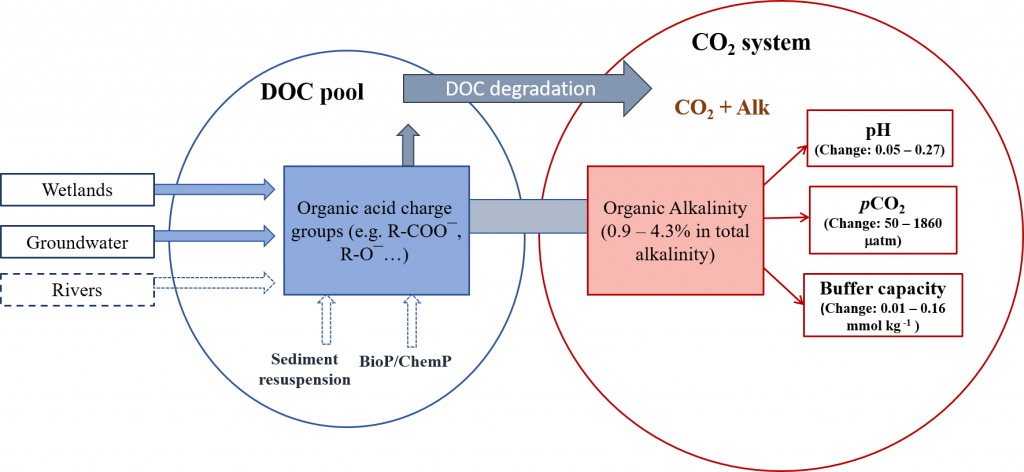
Figure caption: A conceptual model of organic alkalinity cycling in coastal systems. BioP and ChemP represent in-situ biological production and chemical production of organic acid charge groups, respectively. Alk denotes total alkalinity. Arrows with dashed lines indicate processes that were not studied in the present study. The values in the boxes of pH, pCO2, and buffer capacity represent the magnitude of OrgAlk effects on pH, pCO2, and buffer capacity in the range of OrgAlk% in TA observed in this study (0.9 – 4.3%).
Authors
Shuzhen Song (East China Normal University)
Zhaohui Aleck Wang (Woods Hole Oceanographic Institution)
Meagan Eagle Gonneea (U. S. Geological Survey)
Kevin D. Kroeger (U. S. Geological Survey)

